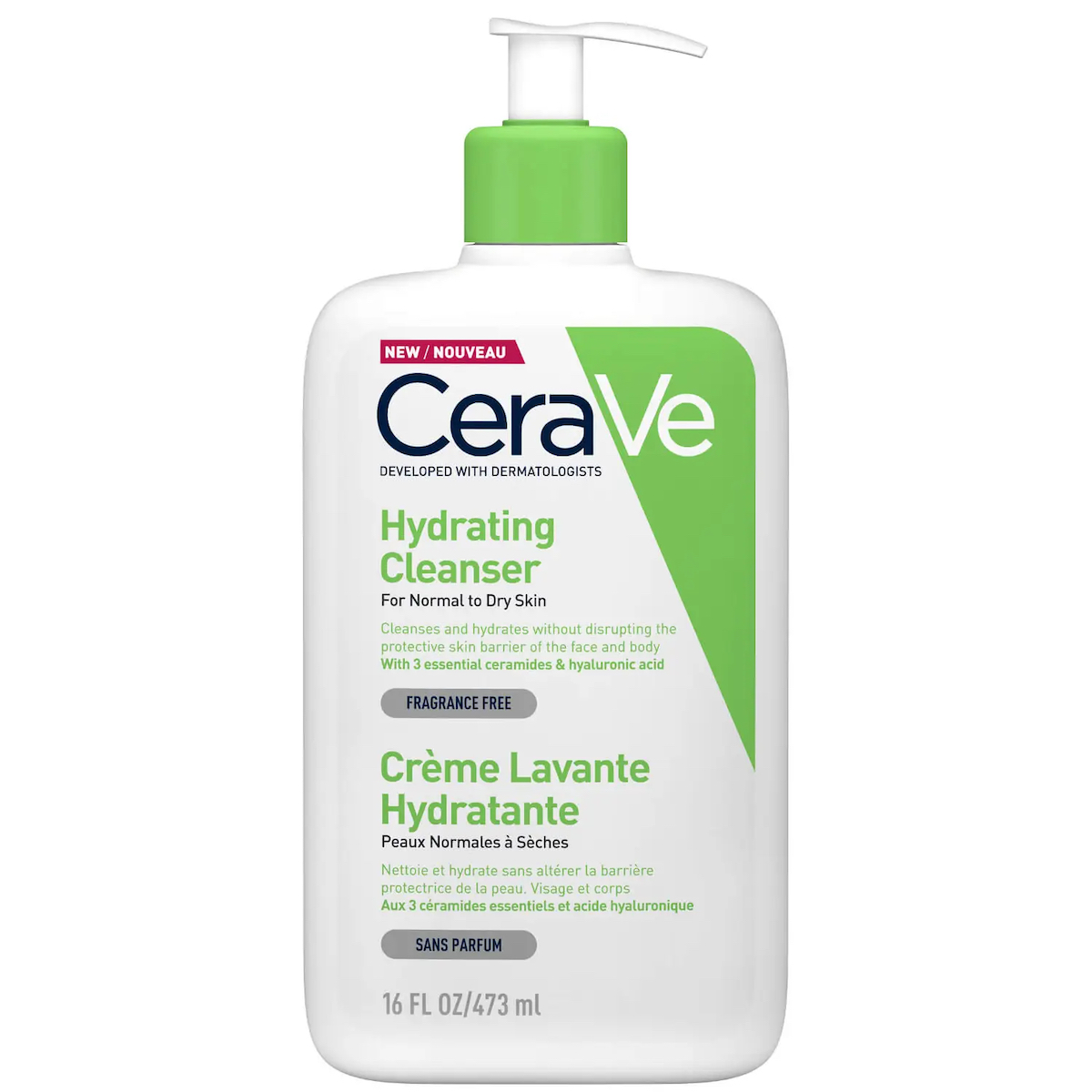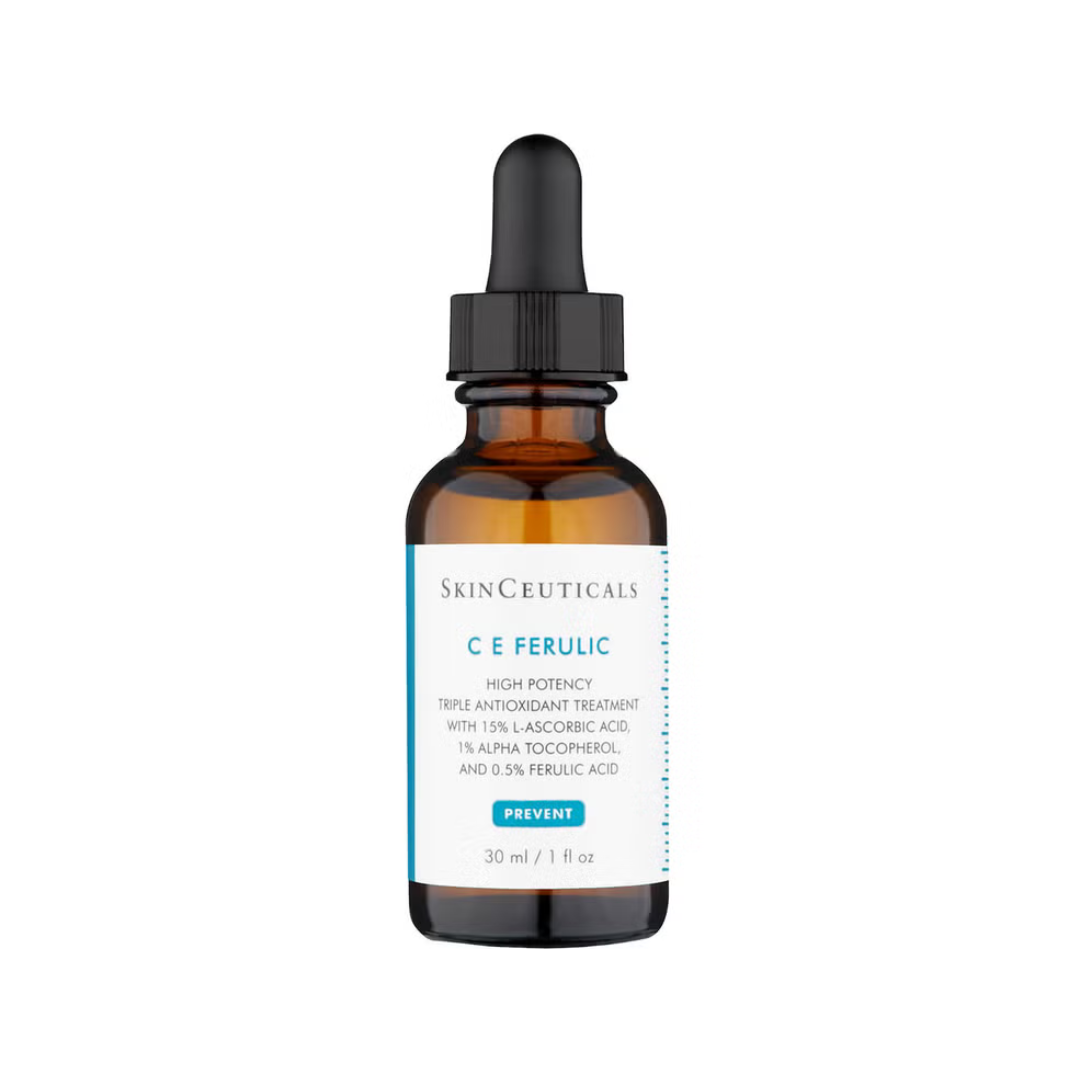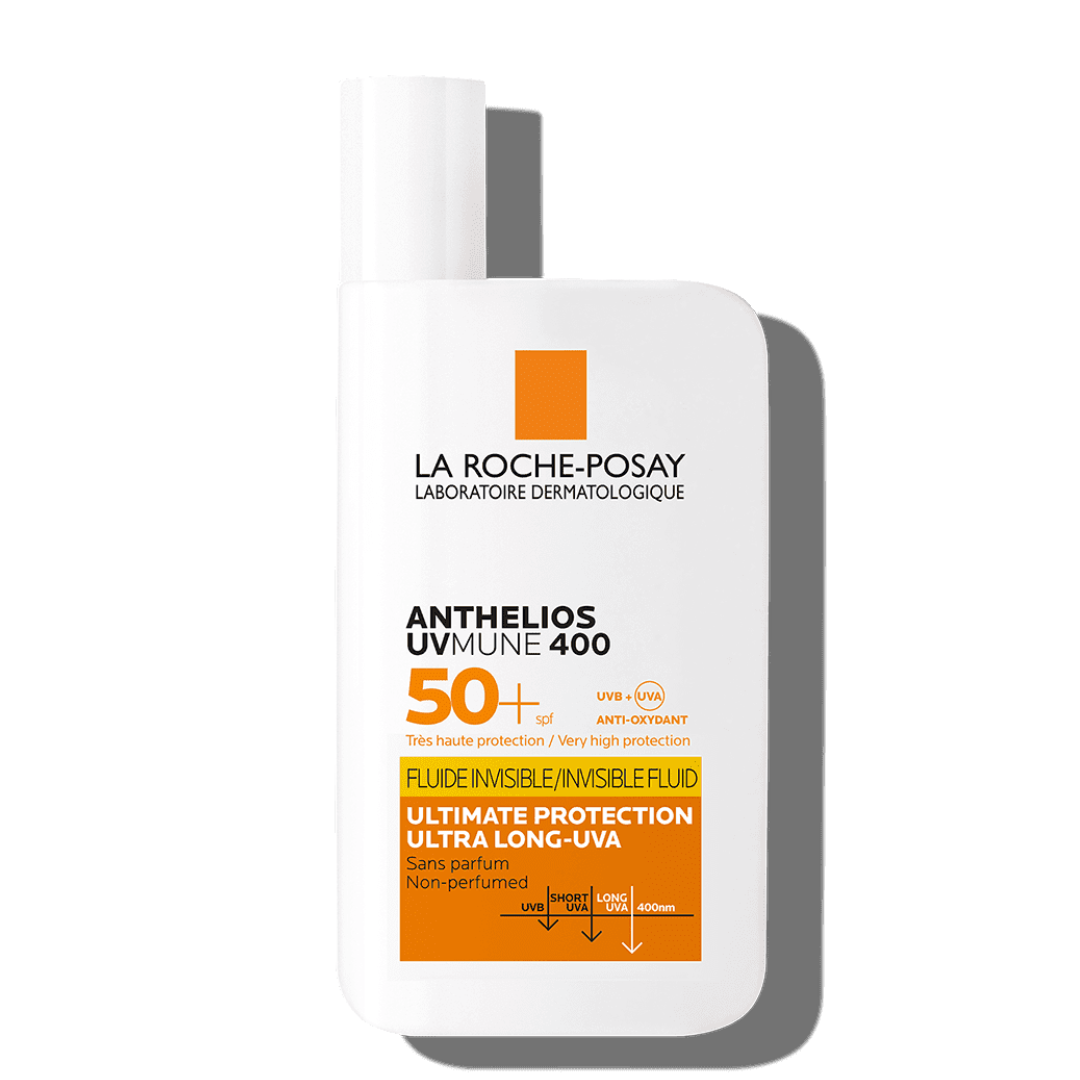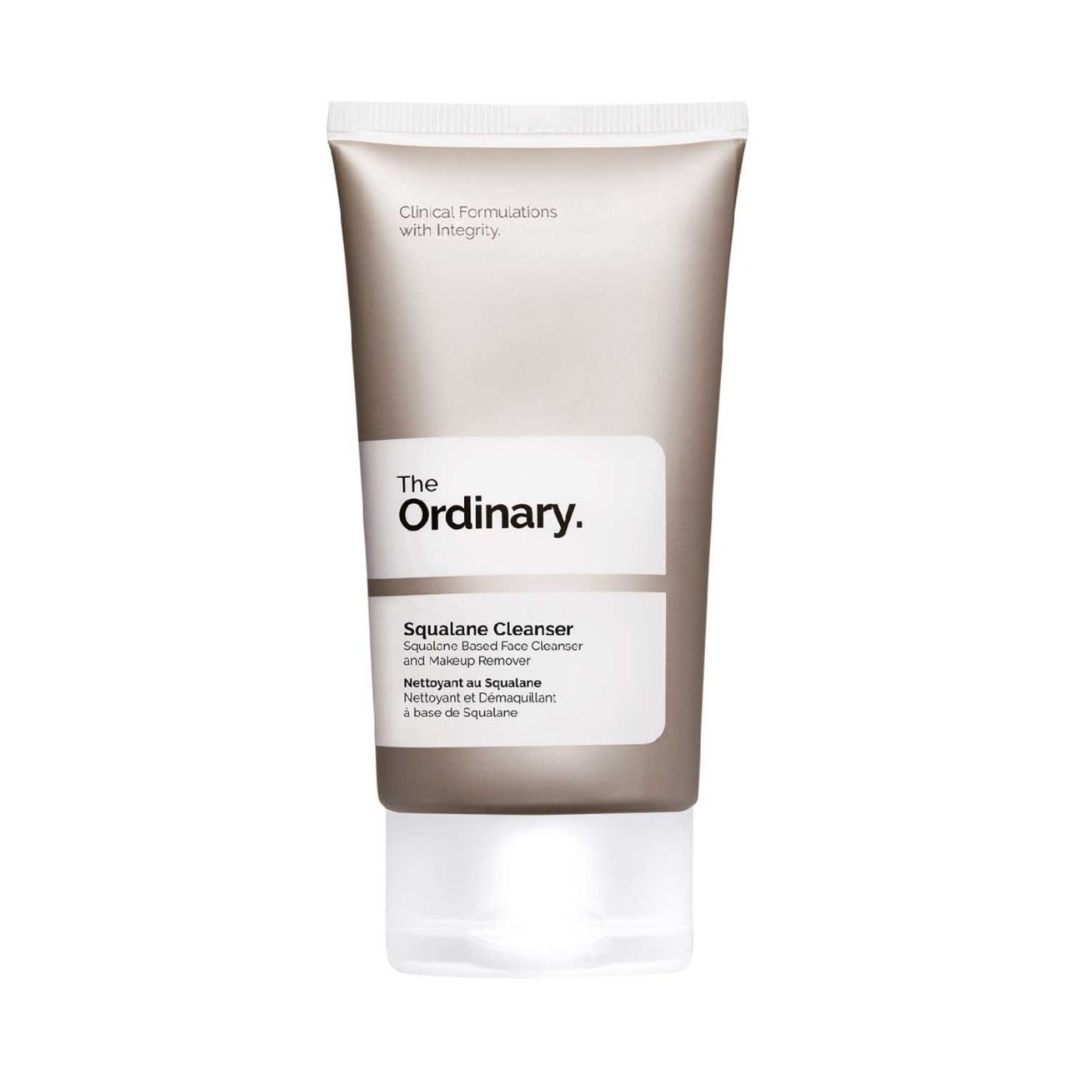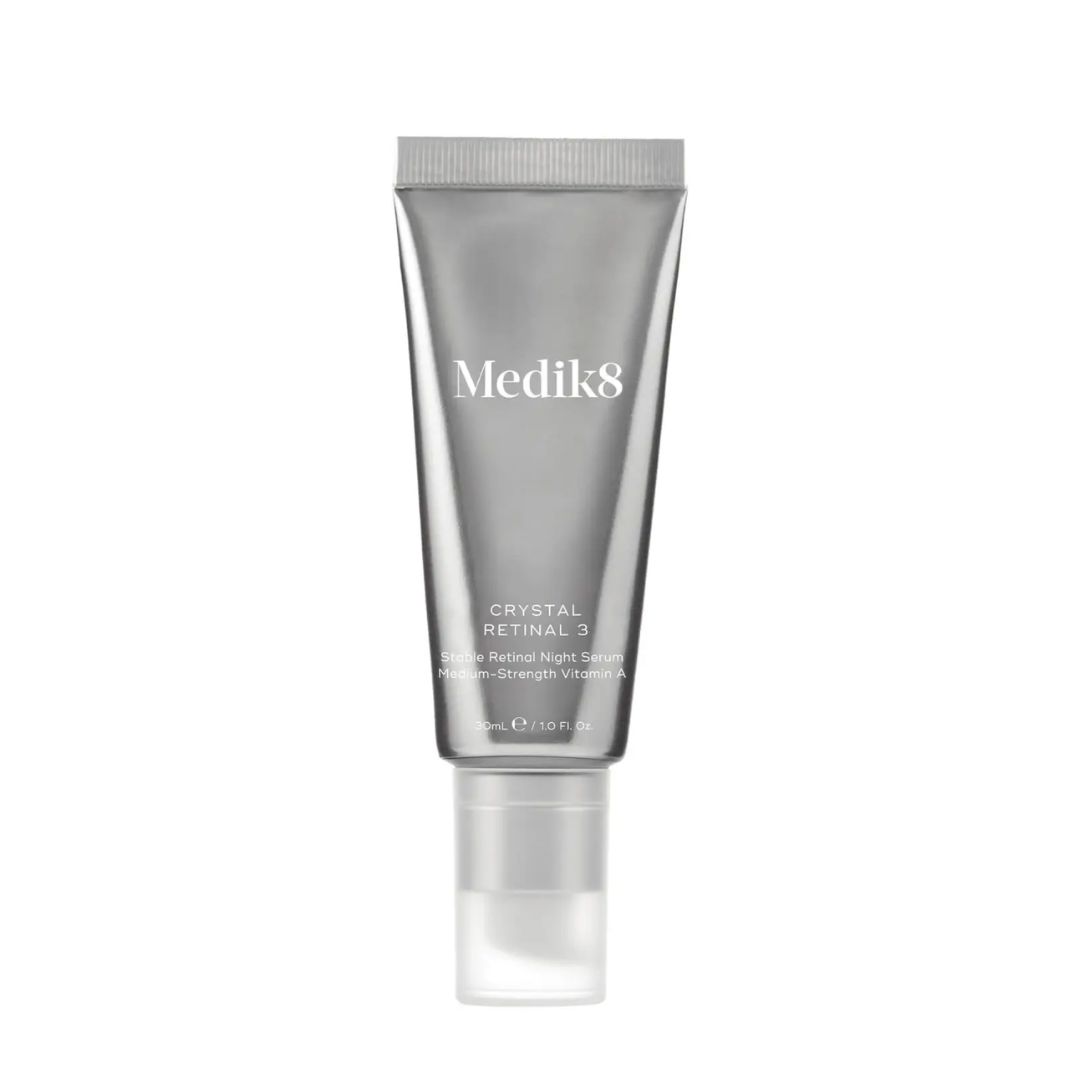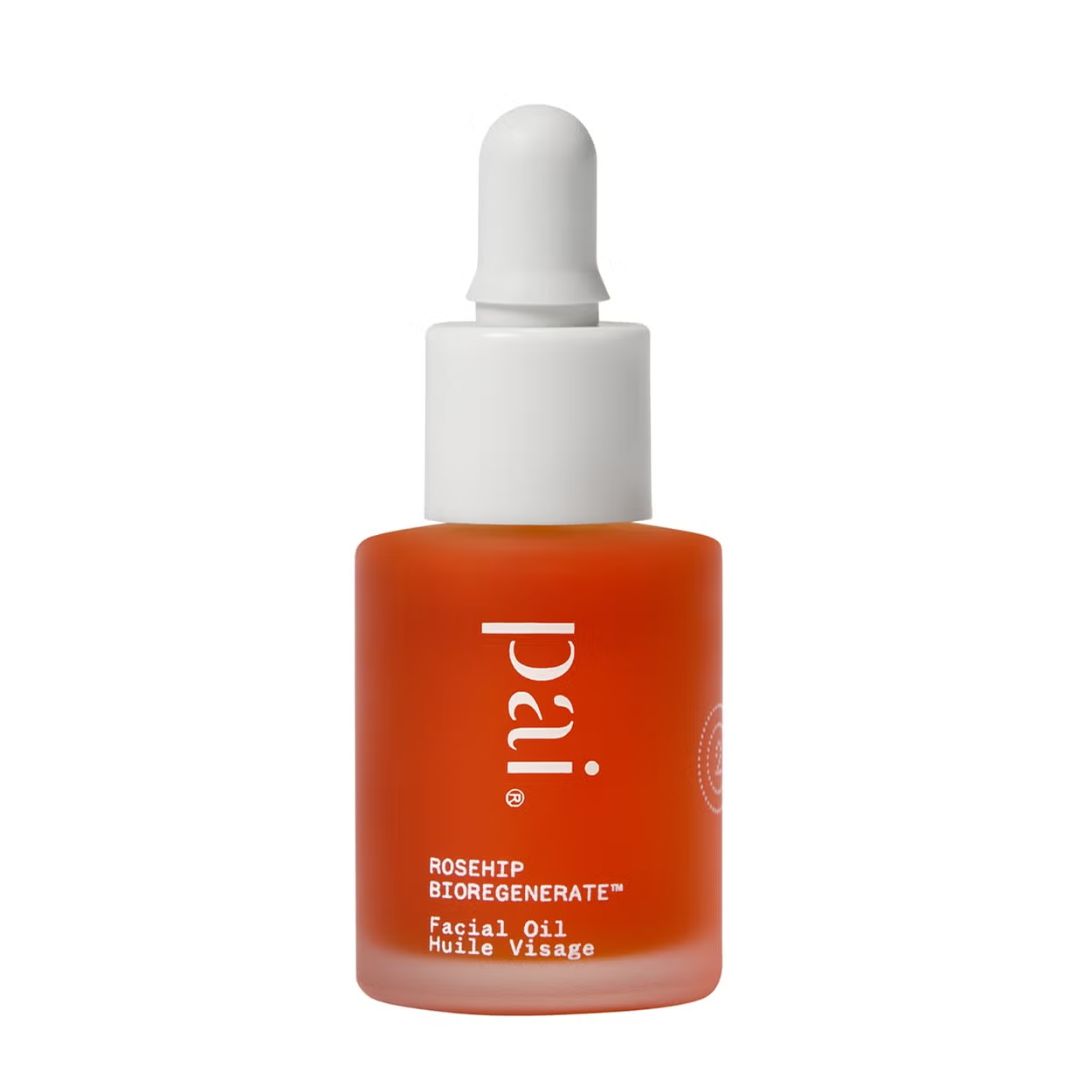Can AI Really Help You With Your Skin? A Dermatologist Evaluates ChatGPT's Skincare Tips
Useful or useless?

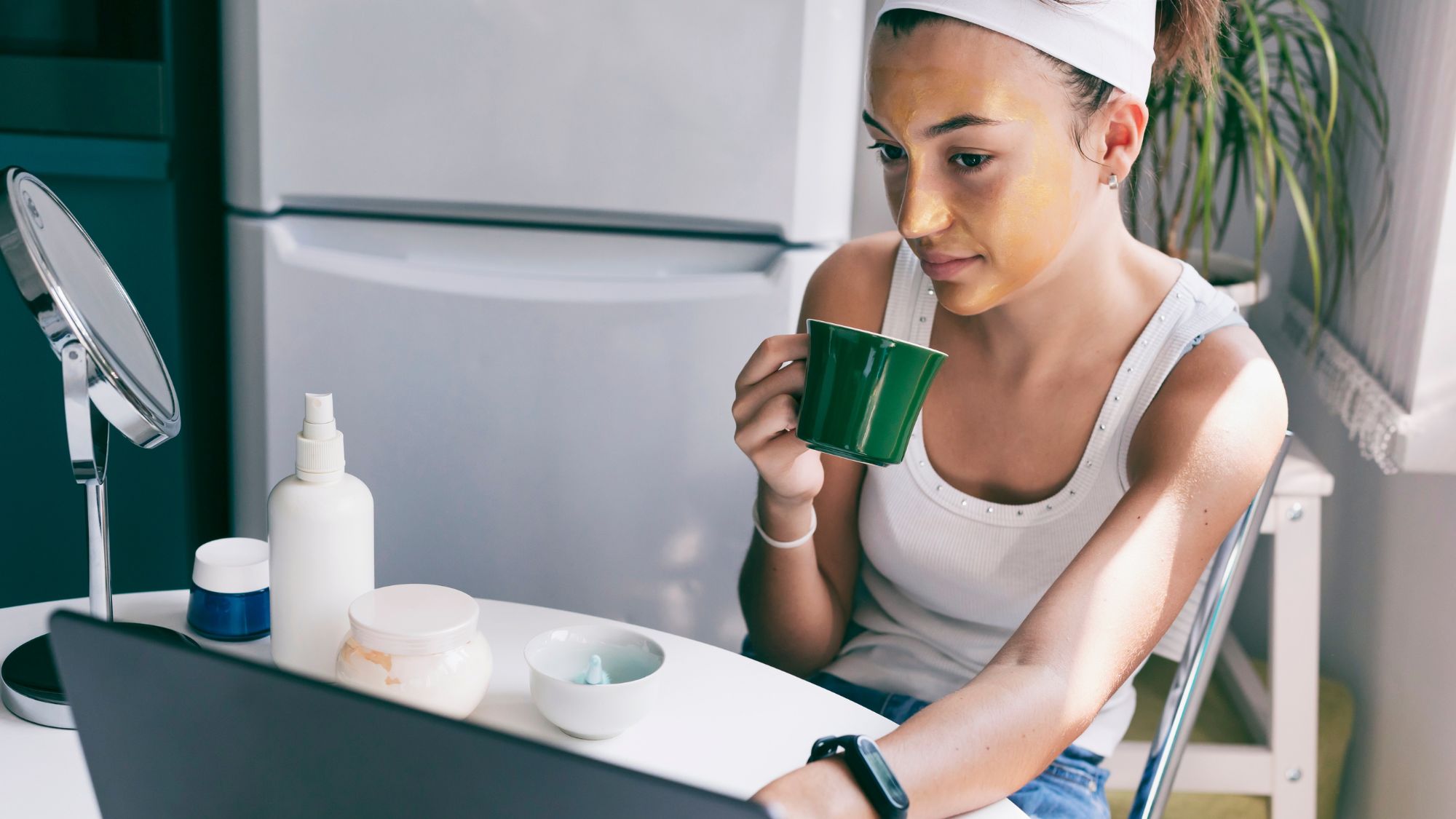
Celebrity news, beauty, fashion advice, and fascinating features, delivered straight to your inbox!
You are now subscribed
Your newsletter sign-up was successful
Whether you have chosen to embrace AI or not, you cannot deny its power, advancement and, in so many cases, its usefulness. I know of friends who have used it to help them write cover letters for prospective jobs, those who've asked it to come up with mood boards for interior projects and, just yesterday, two people suggested that I should ask it to come up with a full itinerary for my upcoming trip to New York. Last month, one of our beauty contributors was bored with her existing fragrances and asked AI to recommend some perfumes that she might like. So, seemingly, we're also using it to help with our beauty queries, too, but how reliable is it?
I decided to put it to the test. Getting an appointment with a dermatologist in the UK is tricky to do, and often expensive, so I wanted to see whether something like ChatGPT could be an alternative way of seeking skincare advice. I asked it to help me out with some of my skincare woes and to recommend a thorough routine, including products, that would address my concerns, whilst also being respectful of skin type and desires. Much like a dermatologist would.
Would I be served useful and accurate advice? Could AI be a reasonable resource for those seeking skincare guidance? To find out, I enlisted the help of Dr Derrick Phillips, a consultant dermatologist, who assessed the AI giant's responses and told me exactly how practical and helpful the feedback was.
Here's what happened...
The prompt:
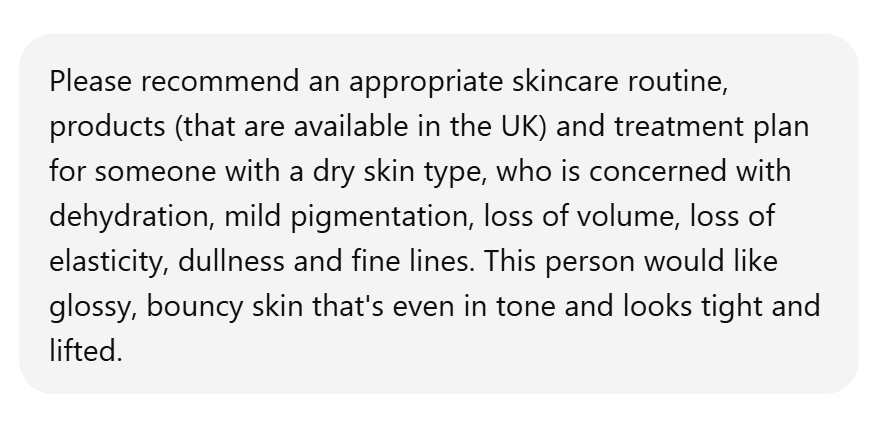
The reponse:
Morning routine:
Aim: hydration + antioxidant + SPF (light dewy finish)
- Gentle hydrating cleanse (non-stripping): CeraVe Hydrating Cleanser — maintains barrier, contains hyaluronic + ceramides.
- Hydrating toner / essence (optional): Hada Labo Gokujyun Super Hyaluronic Lotion — highly effective for dehydration
- Vitamin C / antioxidant (morning only) — improves brightness & protects against photo-damage: SkinCeuticals C E Ferulic — gold standard for pigmentation/fine lines
- Hydrating serum (humectant + barrier support): The Ordinary Hyaluronic Acid 2% + B5 — multi-weight HA for plumping hydration
- Niacinamide or peptide (optional AM if you tolerate both): The Ordinary Niacinamide 10% + Zinc 1% — brightening, barrier support, evens tone
- Moisturiser: La Roche-Posay Toleriane Sensitive Rich — a richer, barrier-repair cream for dry skin
- Sunscreen (final step) — EVERY morning, reapply midday if outside: La Roche-Posay Anthelios UVMUNE 400 SPF50+ — light, non-greasy, good for daily use
Evening routine:
Aim: repair, cell turnover, boost collagen
- Double cleanse if wearing makeup/ SPF, start with a light oil and follow with a hydrating cleanser: The Ordinary Squalane Cleanser
- Hydrating toner / essence (same as AM)
- Hyaluronic acid (if needed) or hydrating peptide serum for elasticity and plumping: The Ordinary Multi-Peptide + HA Serum
- Retinoid (3–4 nights/week to start) for fine lines, pigmentation, texture and collagen stimulation: Medik8 Crystal Retinal — increase frequency/strength over months as tolerated
- Rich moisturiser (lock in with occlusive if skin loses moisture overnight): CeraVe Moisturising Cream
- Facial oil / sleeping balm (optional, a few drops over moisturiser): Pai Skincare Rosehip Bioregenerate™ Rejuvenating Overnight Face Oil
Note on layering & irritation: introduce one new active at a time, patch test, start retinoids twice weekly and work up. If you get dryness or flaking, reduce frequency and add an extra hydrating layer. On nights when retinoid is used, skip potent AHAs/BHAs the same evening.
Celebrity news, beauty, fashion advice, and fascinating features, delivered straight to your inbox!
Weekly boosters:
- Gentle chemical exfoliation (AHA) once a week (lactic acid 5–10% for dry skin) to improve radiance and dullness — avoid same week as strong peel or if using high-strength retinoid.
- Hydrating sheet mask / intensive hyaluronic mask once or twice weekly for a moisture surge.
- At-home microcurrent device (optional) for temporary firmness — choose reputable brands and follow instructions.
Professional treatment plan (3-12 months view)
If you want faster, structural improvements (volume, elasticity, tightened appearance), consider discussing these treatments with a GMC-registered practitioner or dermatologist.
- Restylane / Juvederm skinboosters (intradermal hyaluronic skinboosters) — improve hydration, reduce fine lines, give a dewy, bouncy feel. Typically delivered as a short course (three sessions, 2–4 weeks apart) and then maintenance. Clinics in London and across the UK offer Restylane Skinboosters. meliorclinics.co.uk+1
- Microneedling (Dermapen) ± PRP — stimulates collagen and can help texture, fine lines and pigment (requires downtime).
- Fractional laser or RF-microneedling (e.g., Morpheus8) — for collagen remodelling, tightening, improved elasticity and tone.
- Broadband light / IPL for superficial pigmentation and redness (suitable for mild pigmentation, but it depends on skin tone).
- Dermal fillers for volume loss (cheeks, temples) — gives lift and reduces shadowing that makes skin look older.
- In-clinic chemical peels (superficial glycolic/lactic or TCA light peels) for pigmentation and brightness.
Before any in-clinic treatment, get a consultation from a reputable clinic, check credentials, and ask about downtime, realistic outcomes, number of sessions and maintenance schedule.
My initial thoughts:
My first thoughts were that there was a lot of repetition with brands, so I didn’t feel like I was being offered a well-rounded selection of products. That said, I really rate the brands it chose and already use quite a few of them—like the CeraVe cleanser, the SkinCeuticals vitamin C serum, and the La Roche-Posay SPF—in my routine, so I felt reassured that it was on the right track.
The morning routine was incredibly similar to my existing regimen. I love using an essence, as I find it works well at tackling my spells of dehydration. The evening routine also seemed fine until I got to the face oil, which I would never apply over a rich night cream.
The weekly boosters were particularly interesting to me, because they reflected all the things I mean to do but rarely get around to. I took note and plan to introduce more exfoliation, as well as an intensive moisturising mask. I also have a ZIIP Halo microcurrent device and keep meaning to give it a proper trial to see if it helps with tightening and lifting.
The professional treatments, however, felt a little intimidating, as they all came across as quite extreme options. I would have preferred to see a few more suggestions for less-invasive treatments included in the list.
A dermatologist's thoughts:
Dr Phillips was pleased with the initial review. “The key principles detailed by ChatGPT were correct,” he explains. “It highlights addressing dehydration with humectants and barrier repair, wearing a broad-spectrum SPF to prevent pigmentation and collagen loss, and introducing targeted actives gradually.”
He largely agreed with the structure of the morning routine, noting that each individual step was reasonable. However, he raised concerns about its length. “Seven steps make for quite a lengthy morning routine, meaning many people would be unlikely to sustain it.”
When it came to the evening routine, Dr Phillips was less convinced—particularly about the double cleanse. “I would warn against double cleansing, as this can actually damage the skin barrier, making it more prone to irritation.” He also questioned the recommendation to layer a facial oil over a rich night cream, warning that it could lead to build-up and increase the risk of breakouts.
On the other hand, he was supportive of many of the product recommendations and said he frequently suggests some of them to his own clients. “A product such as the CeraVe Hydrating Cleanser, which combines ceramides and hyaluronic acid in a non-foaming base, is ideal for maintaining barrier health while still removing impurities effectively,” he says. “I often recommend formulas such as SkinCeuticals CE Ferulic or Phloretin CF, which combine antioxidants with brightening benefits. Autumn is also the perfect season to introduce antioxidant serums. These not only protect against environmental stressors but also help address pigmentation left behind by summer sun exposure.”
As for the professional treatment plan, Dr Phillips stressed that these should always be tailored in-clinic by a dermatologist. Rather than taking ChatGPT’s advice at face value and booking in immediately, he emphasised the importance of seeking personalised guidance. “Seeing a dermatologist in person is the best way to establish a bespoke treatment plan based on your skin type and individual needs.”
Conclusion:
I’m often asked by friends to weigh in on their skincare routines, and while I’m always happy to share advice, I can’t help but think ChatGPT could be a useful tool for them too. It provides thoughtful product recommendations and clear, easy-to-follow guidance for both morning and evening regimens.
That said, our skin is deeply personal—and tells its own story through the way it looks and feels. For that reason, I still believe the most valuable skincare advice will always come from a professional who can examine your skin up close and tailor their recommendations to your unique needs.
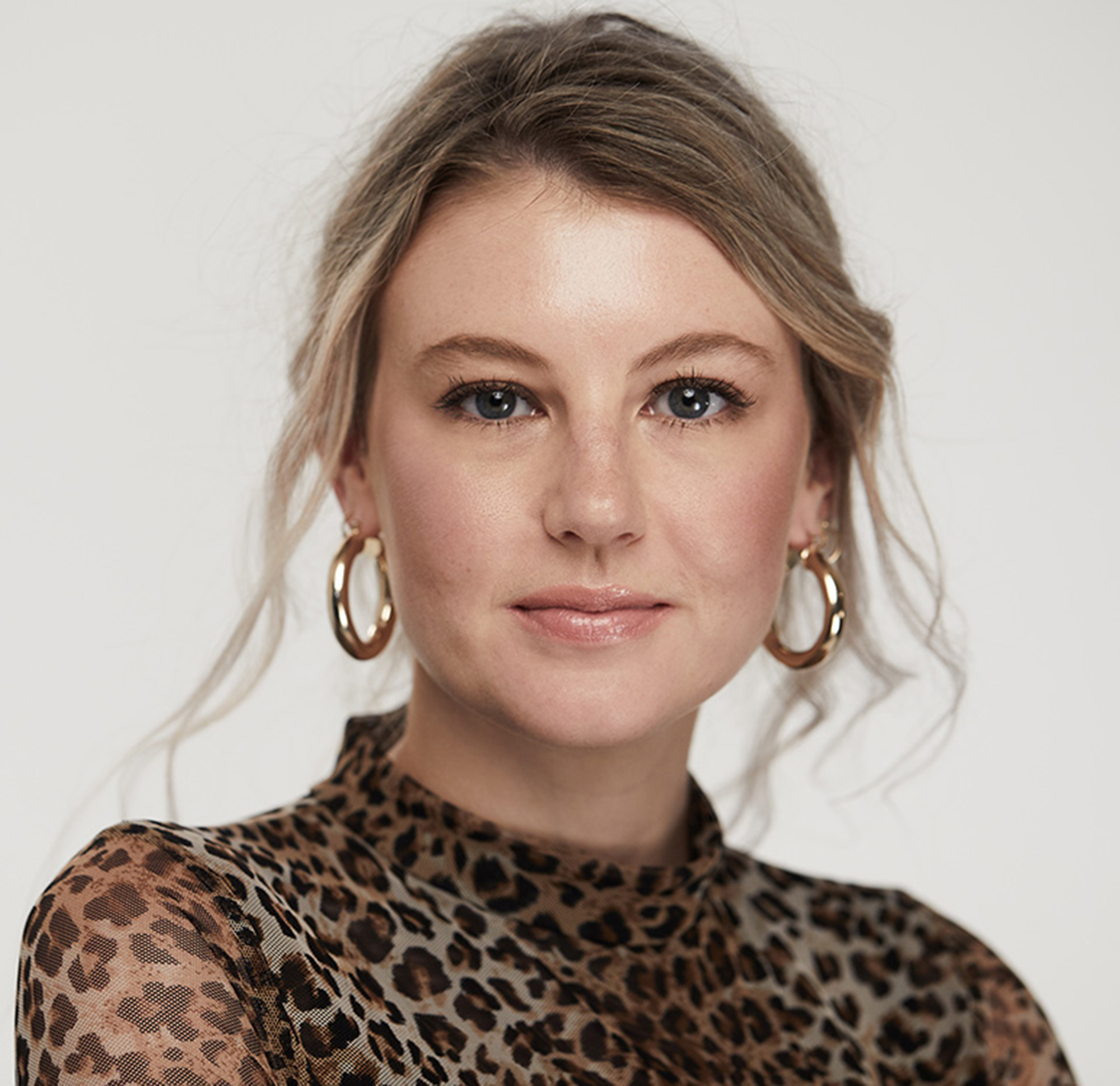
Katie Thomas is the Senior Beauty Editor at Marie Claire UK. With over 10 years of experience on women's luxury lifestyle titles, she covers everything from the best beauty looks from the red carpet and stand out trends from the catwalk, to colonic irrigation and to the best mascaras on the market.
